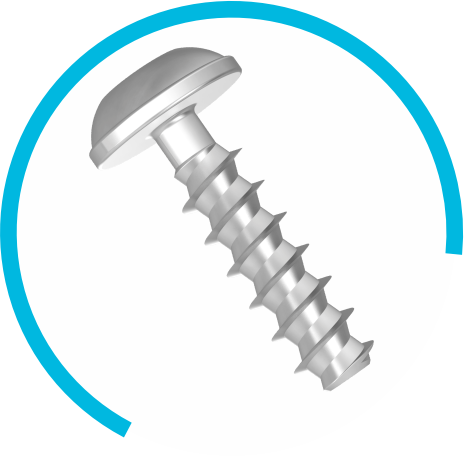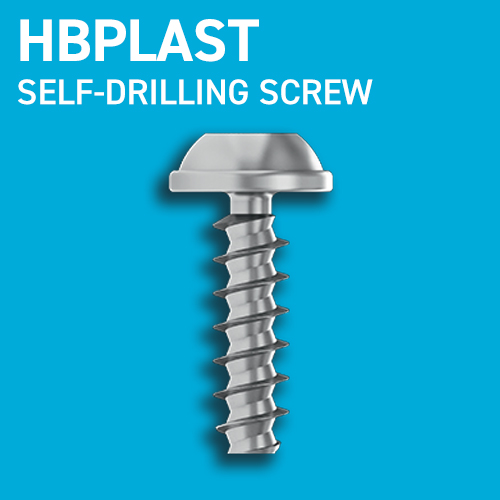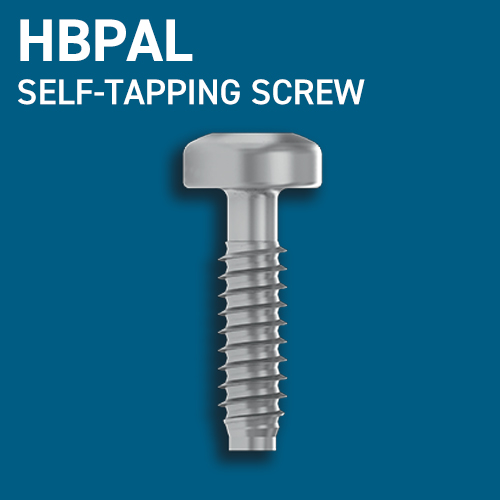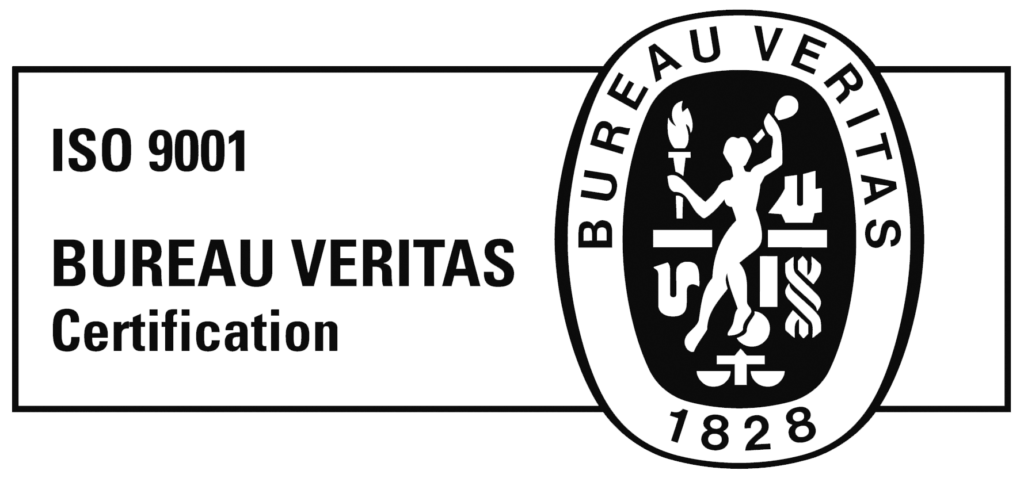Screws for Plastics and Light Alloys
Solutions for Thermoplastics
SECAM has been your partner for over 50 years in designing and industrializing screws for plastics and light alloys. We offer a complete range with over 700 references available in stock.
Technical Screws for Plastics and Light Alloys
Solutions for Thermoplastics
Fastening plastic or light alloy parts requires specific solutions that ensure optimal mechanical strength while respecting the material properties.
At SECAM, we offer a complete range of screws for plastics, including forming screws and self-tapping screws specially designed for assembling thermoplastics, thermosets, and light alloys.
Forming and Self-Tapping: Two Suitable Fastening Principles
Screws for plastics are distinguished by their ability to create threads directly in the material without prior operations. There are two main technologies:
Forming Screws
Plastic forming screws displace the material instead of cutting it, thus creating a thread by deformation. This process avoids chip generation and ensures a clean, solid fastening without material weakening. These screws are perfectly suited for thermoplastics such as PP, ABS, PA, or POM.
Self-Tapping Screws
Self-tapping screws create threads by cutting directly into the material. This process suits hard plastics (thermosets) and light alloys like aluminum. These screws provide high mechanical hold, especially in environments exposed to vibrations or repeated mechanical stresses.
Compatibility with Technical Materials
Our fastening solutions are designed to meet the needs of many materials, with optimized profiles and geometries.
Thermoplastics
Thermoplastics, being flexible and malleable, are particularly suited to forming screws. The thread created by material displacement offers excellent pull-out resistance while maintaining assembly tightness.
Thermosets
For rigid and non-reformable materials, self-tapping screws are the ideal solution. Their cutting ability allows precise and secure fastening without risk of cracking.
Light Alloys
In alloys such as aluminum or magnesium, self-tapping screws ensure excellent holding power, even without pre-drilling. Their tip shape is designed to guarantee immediate anchoring and quick installation.
Advantages of Our Screws for Plastics and Light Alloys
- Quick installation without prior tapping or inserts
- Excellent mechanical resistance to pull-out and shear
- Partial removability: some screws can be removed up to 10 times without significant thread damage
- Time savings and reduced production costs
While they do not fully replace the performance of an insert + screw assembly, self-tapping and forming screws offer an effective solution in many industrial cases.
Application Fields
Our screws are used in many industrial sectors to assemble plastic or light metal parts, including:
- Automotive: fastening dashboards, door panels, enclosures, and interior elements
- Electronics: assembling shells, printed circuit boards, technical enclosures
- Industrial Equipment: fastening covers, boxes, mechanical components
These screws are also popular for everyday objects, household appliances, and product design applications.
Engineering Tailored to Your Projects
Unsure which type of screw to choose for your application? Our engineering service assists you in selecting the fastening solutions suitable for your material, mechanical constraints, and production rate. We guide you to optimize your assemblies in collaboration with your R&D and production teams.
Need a Quote or Technical Advice?
Whether you seek forming screws for thermoplastics or self-tapping screws for rigid plastics and light alloys, our team is at your disposal.
Contact us now for personalized support, quick quotes, or sampling.
Choose SECAM Screws for high-performance, durable assemblies perfectly adapted to modern plastic and metal materials.
Contact us
Do you have a technical or commercial question?
You can also write to us or call us.
FAQ – Screws for Plastics and Light Alloys
What is the difference between a forming screw and a self-tapping screw?
A forming screw creates threads by displacing plastic material without cutting it. It is especially suited for flexible thermoplastics as it does not generate chips. Conversely, a self-tapping screw cuts material to form its own thread, making it more suitable for rigid plastics or light alloys. The choice depends on the material nature and the assembly's mechanical requirements.
Can these screws be used without metal inserts?
Yes, forming and self-tapping screws are designed for use without metal inserts. They screw directly into the material, saving time and reducing costs. However, for assemblies subjected to frequent disassembly or high stress, using inserts may still be advisable.
Which materials are compatible with forming and self-tapping screws?
These screws suit thermoplastics (PP, ABS, POM...), thermosets (polyester, epoxy resins...), and light alloys like aluminum or magnesium. Their tip and thread geometry allow direct insertion without tapping or special preparation, simplifying industrial assembly processes.
What are the advantages of forming screws?
- Thread creation without chips
- Less stress on the material
- High pull-out resistance
- Suitable for flexible materials
They ensure clean, reliable, and durable fastening while simplifying manufacturing processes.
How to ensure optimal mechanical performance?
To ensure mechanical performance, it is essential to:
- Choose the right screw type for the material
- Follow drilling recommendations (diameter, depth)
- Use appropriate tightening torque
- Avoid material over- or under-thickness
If in doubt, the SECAM engineering team can help define the most suitable solution for your assembly constraints.
Can forming or self-tapping screws be reused?
Yes, most self-tapping and forming screws allow limited disassembly, generally 5 to 10 cycles. However, after several removals, the thread in the material may wear, reducing mechanical hold. For frequent assemblies, an insert + screw solution is often recommended for long-term performance.
What are the main application areas for these screws?
- Automotive: dashboards, door panels, engine parts
- Electronics: enclosures, boards, connectors
- Home appliances: shells, covers, technical parts
- Industrial equipment: coverings, boxes, mechanical systems
They integrate into all projects where plastic or light metals require reliable fastening without complicating manufacturing.







